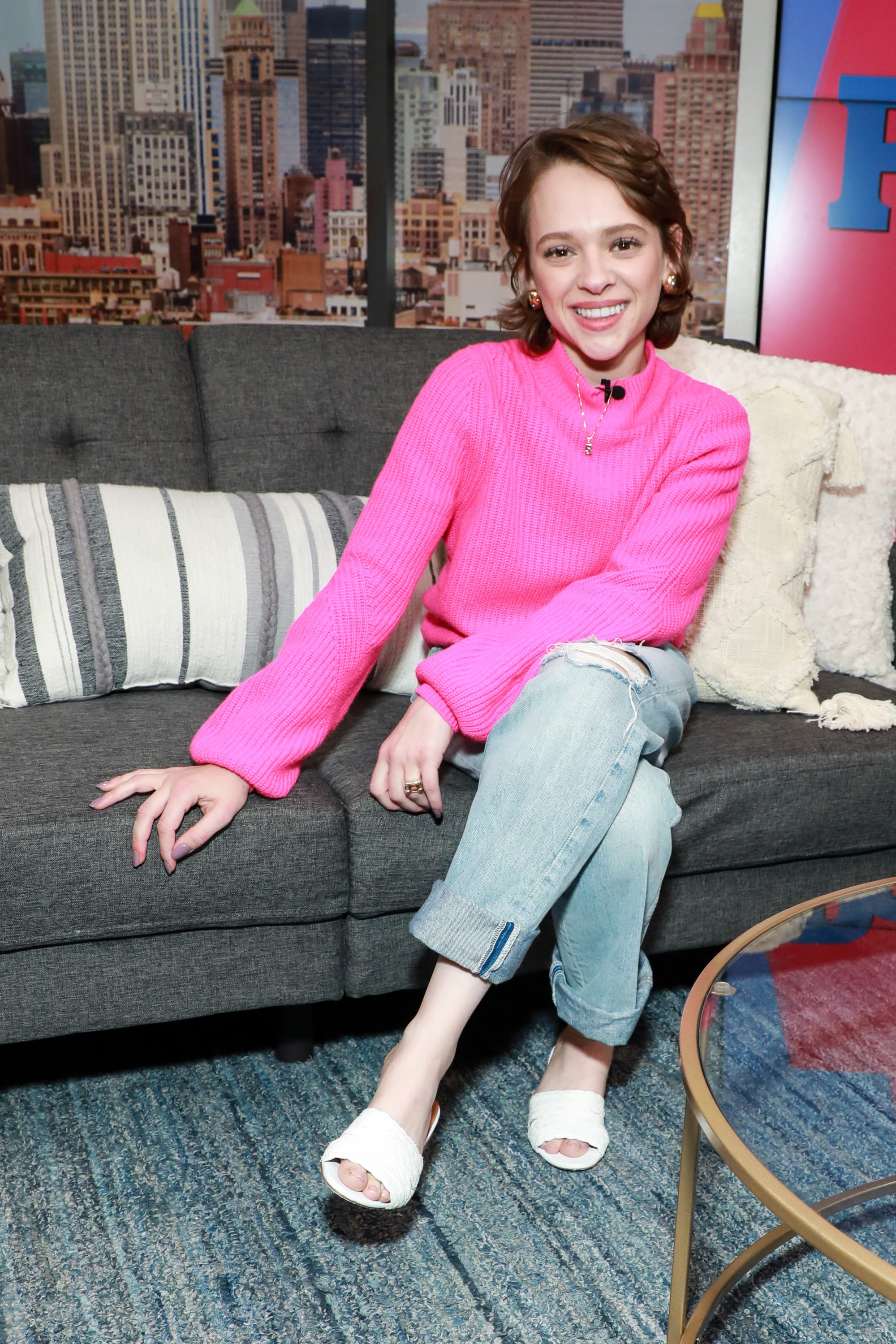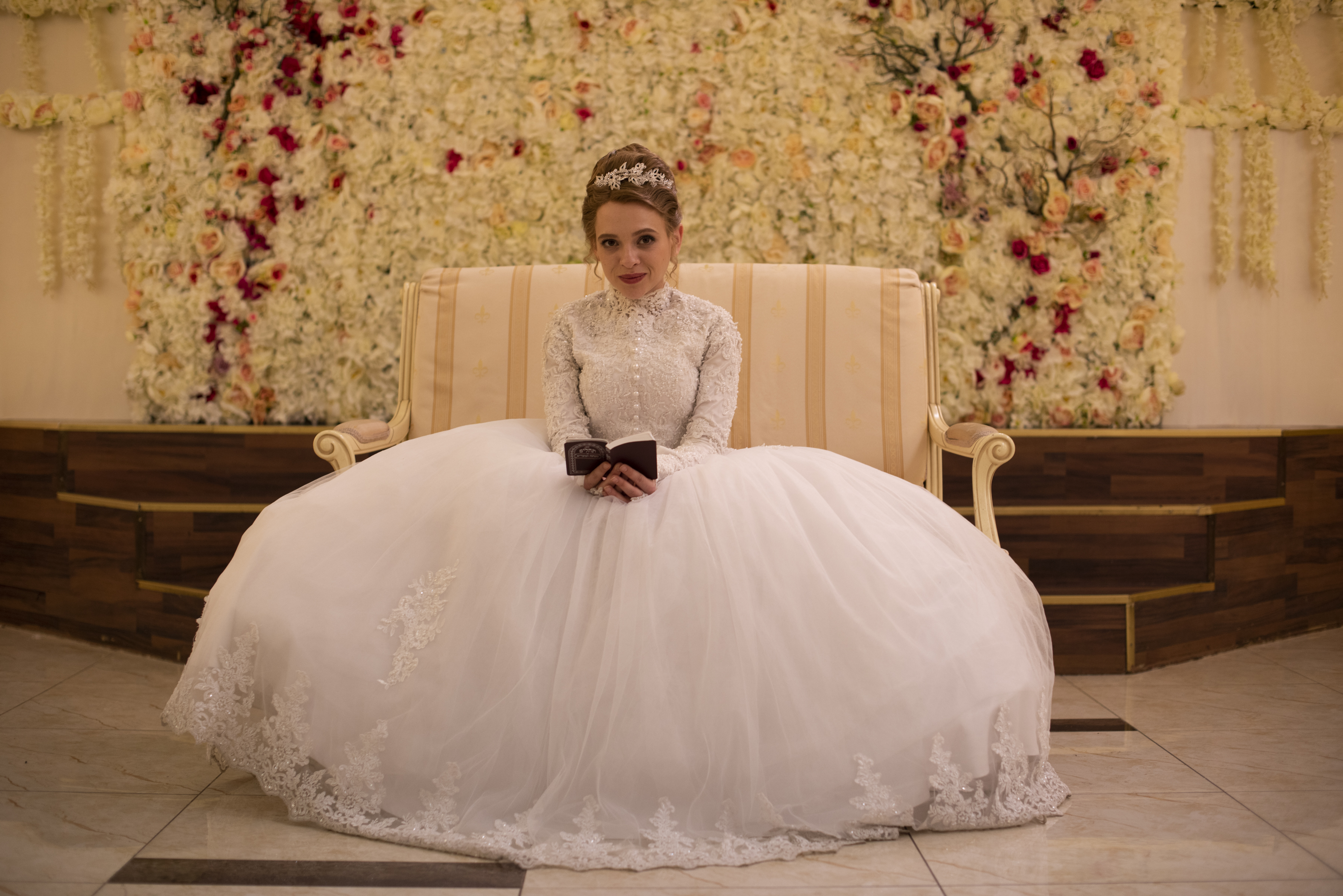
- Interviews
Shira Haas: ‘Playing Esti was an amazing gift for an actress’
In Unorthodox, the first Netflix original series in Yiddish, Shira Haas plays Esti, a young woman in a strict Hasidic community in Brooklyn who decides to flee to Berlin in search of her mother after a failed marriage puts her at odds with the group. The New York Times just called her ‘a phenomenon’, but this is not the first time that the Israeli actress has been celebrated for her work. She won the Best Actress award at the Jerusalem Film Festival for her leading role in Princess in 2014, when she was just a 16-year old. Shortly after, Natalie Portman cast her in A Tale of Love and Darkness, and Shtisel, the TV show, also in Netflix, about an Orthodox Jewish community, gave her a dose of celebrity for playing Ruchami, the young daughter of a suddenly single mother. Haas worked along Jessica Chastain in The Zookeeper’s Wife and Rooney Mara in Mary Magdalene and was part of the celebrated cast of Foxtrot, winner of the Silver Lion in Venice as well as the lead in Broken Mirrors. We had the opportunity to chat with her from her home in Tel Aviv, where she is waiting for a return to normality and the start of the filming of the third season of Shtisel, which will return four years after it ended its original run.
What would you say were the biggest challenges in playing Esti for the show?
Acting-wise I can say that she’s probably one of the most, if not the most really complex characters that I’ve played, and there’s so many reasons but she’s very much of everything in a way. She’s very soft and very strong at the same time. And she has so many questions. She feels very indifferent but she really wants to fit in. She has so many conflicts inside of her that she really brings to every scene really. Playing Esty in Unorthodox is an amazing gift for an actress. It’s very challenging and I try to be the best I can in a scene. And also what was really amazing and challenging for me was to learn all of the new things from the research, the place she was coming from, but also learning Yiddish for example, which I didn’t know before and having piano and vocal lessons and a lot of things that were principal to the preparation for the role.
We see her in two very different situations, when she is inside a community and when she is in Berlin. So which one of the two did you enjoy the most?
It’s interesting because we shot the past scenes with all of the family and all the community scenes and then we moved to the new scenes. It’s like a different series in a way. And I remember after having so many days in the past scenes it was great for me to have new cast members and new outfits and new locations. We filmed so much outside Berlin. I remember thinking this is great for the character as well, so new and so different and I was kind of overwhelmed with everything in a kind of a different way. I don’t know which one I loved more, it’s still the same Esti and even in Berlin she’s like someone new that has to leave a place and have a new life. It takes a lot of courage to leave the only place you know. But when you leave you are not truly leaving it, it’s still inside of you. So it’s a never-ending challenge and journey and you still have it and I think she will have it for the rest of her life in one way or another. But I didn’t feel like it was playing a different character, it was like playing all different sides of Esti. And also in Berlin, she has her challenges and her moments and she has very difficult moments for sure, but she’s also very happy and there are those moments. So I think she’s complex and interesting.
We see how hard she tries to fit in the beginning when she is in the community. It’s not that she is a rebel from the start, she tries to follow the rules. Can you talk about that part of the character?
I love that you say that because it was so important for me and very important to us. It’s not a story about a girl from the very beginning who doesn’t want to be there and just wants to leave. No, it’s more complex than that. You really feel like she wants to belong, she just wants to be loved and she just wants to feel like home. And she doesn’t think about any other options, this is her reality. She loves her family and this is the only thing she knows. And she really wants to fit into this perfect case, to be this perfect granddaughter and to be this perfect wife and she is looking forward to her wedding. She really thinks that getting married is her super new life, and finally has a fresh start, to be loved like she always wanted to be and she is really trying to be that. And these literally are the challenges that she has and she is still trying so hard and she has given up so much of her personality and given up symbolic wise even her own body and she really put it all there just to fit in. And she really leaves this when she feels she doesn’t have a choice. I remember speaking to this lady and asking her, why did you want to leave, and she just looked at me and she said no one wants to leave. It gave me the chills because no one really wants to leave the place they know. This is her culture, her rituals, the place that she knows, the people that she loves. And it takes a lot of courage to try to leave when every other place is very odd.
How difficult is it to act in a language that you don’t really command?
It’s amazing. It’s not the first time for me, I also played another role where I didn’t know the language that I did. But it’s so different than learning an accent, which is also fun. When you are doing accents, you need to change what you already know. It’s very, very difficult to change your system. But when you learn a new language, it’s like everything is new. And I love learning new stuff and new cultures. But it’s very, very challenging, because I think playing this character, 40 percent of my lines are in Yiddish. But I loved it. It was a long process and when I come to set, I feel like it’s my language and I don’t want to think about it and freely act in the scene. But so many hours I worked on that with an amazing teacher and we just spent so much time together and learned Yiddish. It was very important for me to speak well and have good results.

Shira Haas in a scene from Unorthodox.
anika molnar/netflix
How much did you research into the life of the Satmar Hasidic community from Williamsburg?
I did a lot of research. I also read the book a few times. It’s very different from the show and I took what I needed, which really helped me. But I did a lot of research, I saw pictures online and I saw interviews and I saw the streets of Williamsburg and I could definitely feel the essence of it. And also in Berlin, all the rituals and they talked to me about everything, everything. So everyone was so specific and made me feel really comfortable, also because it’s more complex and more interesting and it was the moral thing to do. And I am telling you, every religious person who sees the show will be like ‘wow, this is very accurate and this is for everyone and even for me’.
Do you think that the fact that you were in the cast of Shtisel played any part on you being cast in this show or was it just a coincidence?
I don’t think it was on purpose, to be honest. I mean the characters and the histories are different. And also, it’s different Hasidic communities. So for me, it’s not the same at all but I think probably in a way playing Ruchami and also being from Israel and having been in my family and being aware of it, maybe it made me more open and understanding of these worlds than if I wasn’t from Israel. That’s for sure.
Ruchami was such a beautiful role, I mean she was such a nice girl. But you were playing 13, 14 and you were 18 at the time. So how was that experience of being in the show?
Ruchami was 15, something like that. But yeah, I was like 18, 19 and yeah, I have the possibility to play younger parts and I always laugh that during the last two years, I played a 17-year old, a 16-year old and a 24-year old. So in 2 years I grew an 8-year range of characters, (laughs) that’s sort of like a superpower, right?
When Shtisel came to Netflix, it became a global success. Were you surprised when that happened?
Yes, very much. I was surprised. And it was a few years after it was released here. It was a big success in Israel. And it was over and suddenly 2 or 3 years after, it was suddenly on Netflix and a huge success. And so it was very amazing and such a success and I got so many comments from all around the world And I loved Shitsel, it’s a very specific show and it’s a very specific story, a very specific place, a very specific language and the fact that even though it’s such a specific story, it was celebrated by people all over the world.
And I need to also talk to you about Princess because you were a student and suddenly someone called you for a role. And it was a very challenging role too and it did go to Sundance. So how was the whole experience for you?
Yeah, wow, I love talking about Princess. It was my first project and it came to me. I was in acting in drama school and I didn’t have an agent or anything and I just got this offer from a scouting director, this very well known one, and I was a theater major and she approached me and this is basically how I got the role. And then I entered this journey of Princess and I had the most amazing director there and it was my first ever movie and there were so many rehearsals and she gave me so many movies to see. She really opened my eyes to this cinema world which I really loved. She taught me so much. I came from theater as a teenager a little bit, but she really taught me about cinema acting, to say things with your eyes and not out loud as we do in real life, and I learned so much from this experience. And yes, I remember, it was a hardcore first role but first of all, I was 16 and a half, even though I played a younger character, and we were really like a family. And I was so lucky to work with such an amazing crew of people and they were like amazing to me from day one and yeah, even then when I was really young, I always had this urge to tell stories that could maybe change people’s lives after they had seen it.

